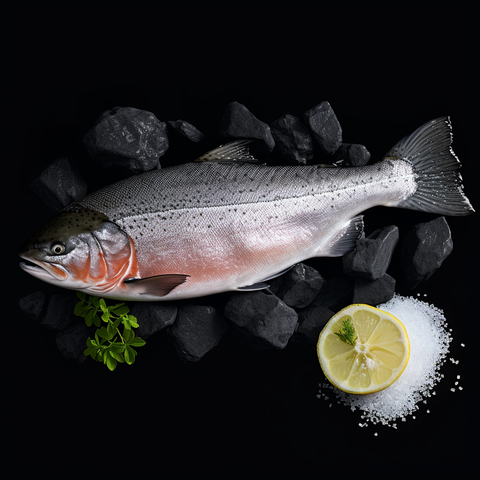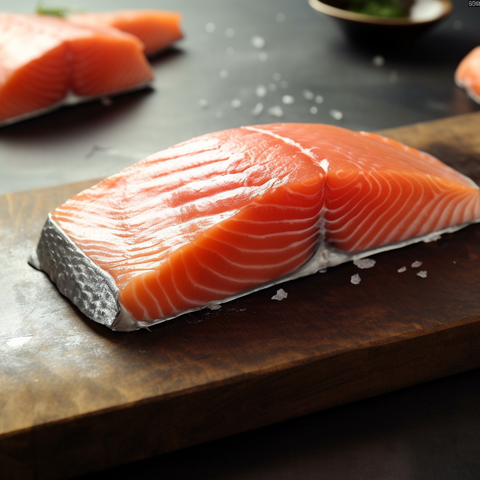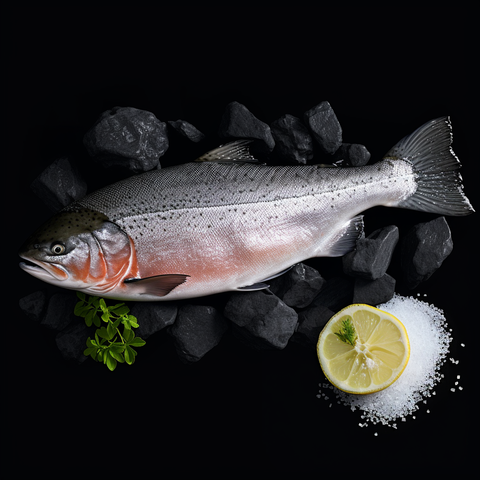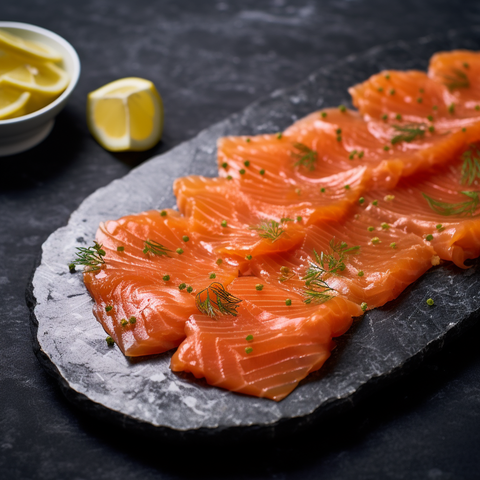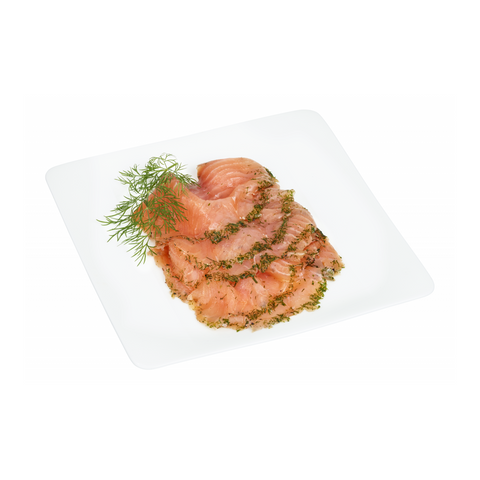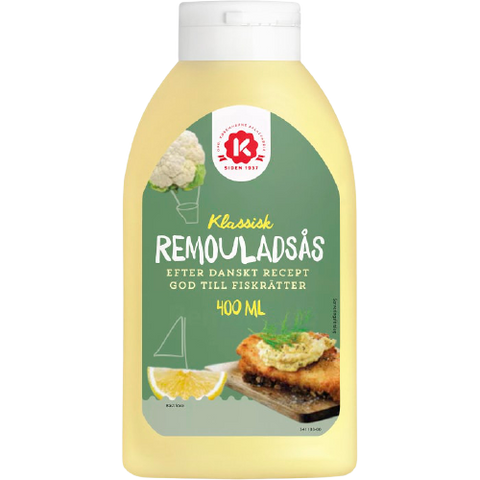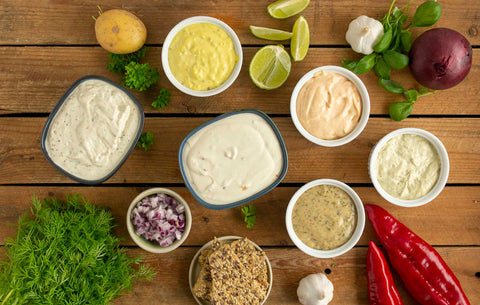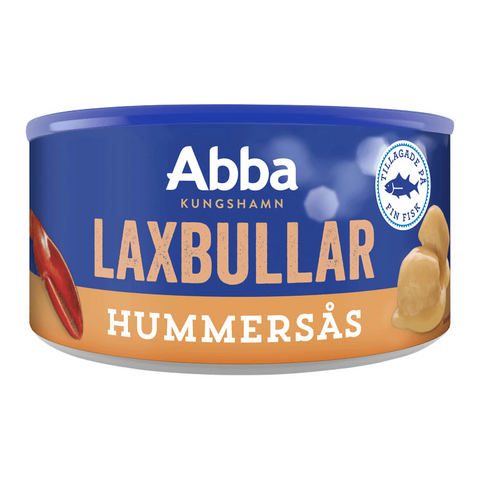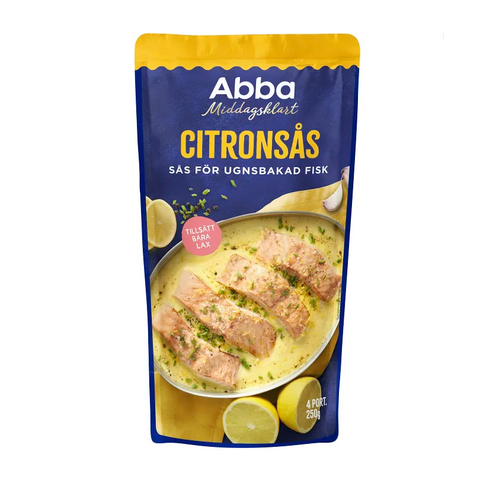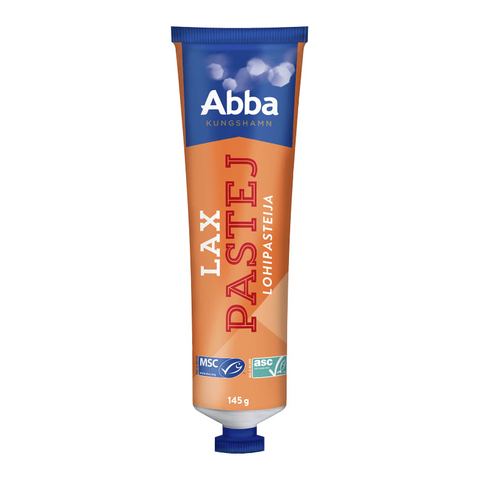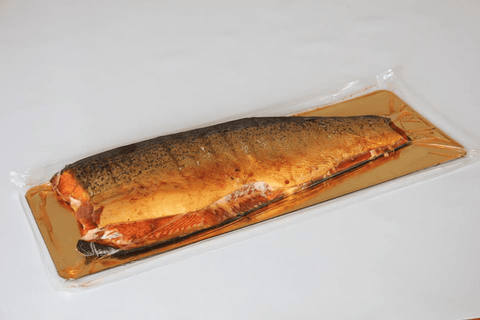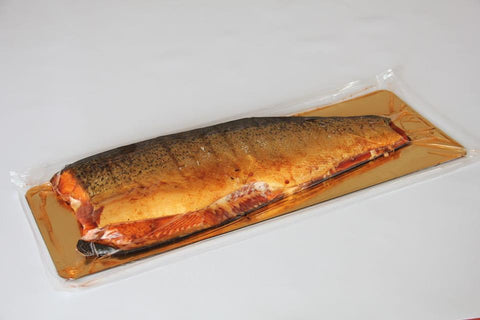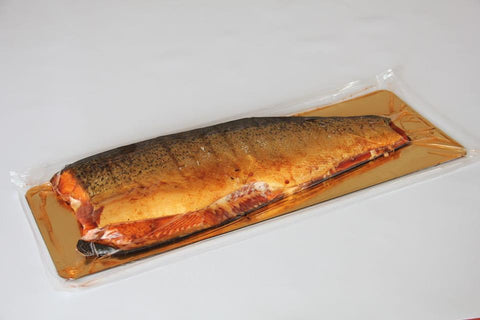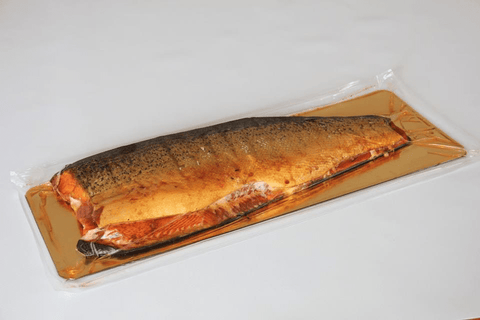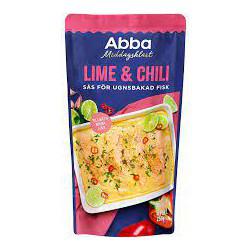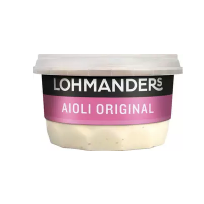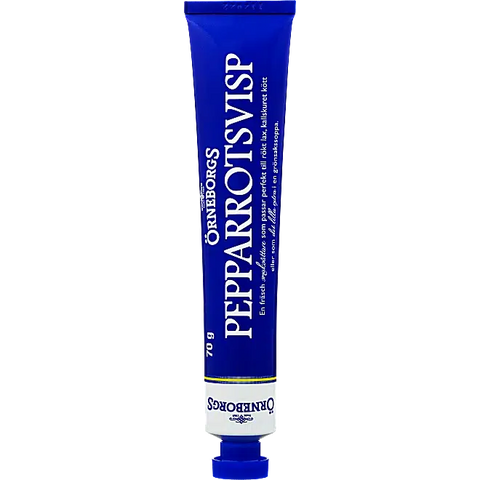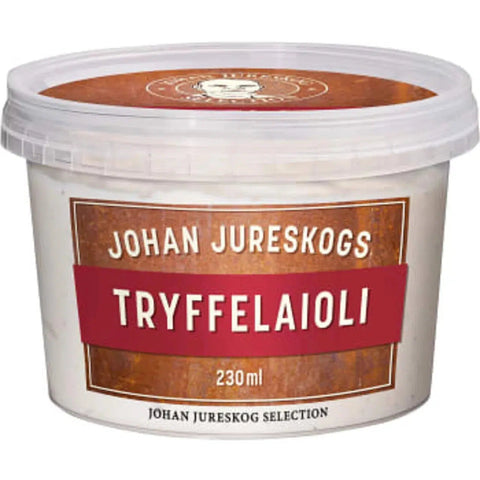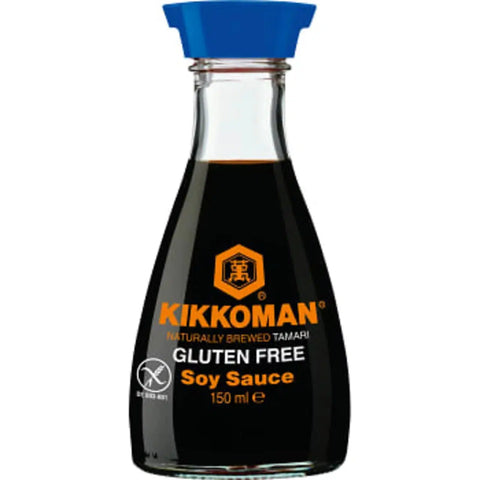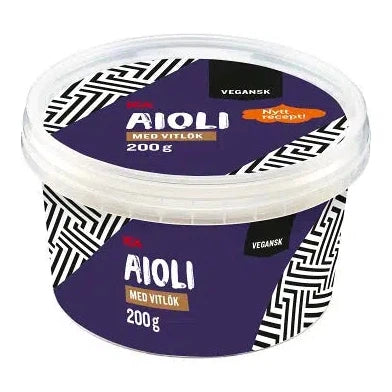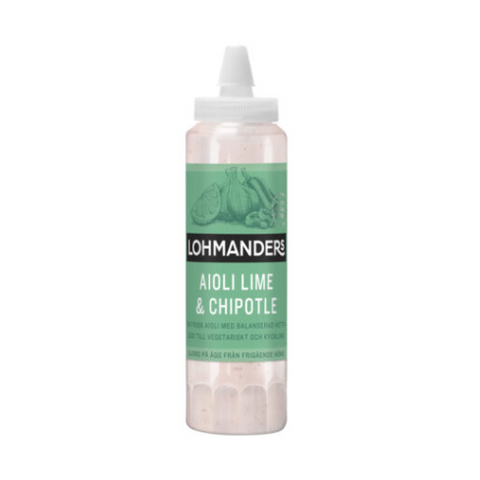Keep Calm and Salmon On!
Salmon: The Most Delicious Stress Reliever
Nowadays, it’s hard to find someone who isn’t felling stressed, uneasy or anxiety about something —whether it’s from work or your personal life. The external factors can feel unavoidable and complex, but what many people don’t realize is that we have the power to manage or at least try is the internal factors that influence how we cope with stress.
One of the most impactful but often forgotten ways to do this is through our diet.
The Connection Between What We Eat and How We Feel
Our diet isn’t just about fueling our bodies; it’s a powerful tool that shapes our mental well-being.
What we consume plays a critical role in determining how we handle stress, regulate our mood, and even how well we sleep.
Nutrient-rich foods like salmon can do wonders beyond just satisfying hunger—they actively support our mental health. Think of omega-3 fatty acids, found abundantly in salmon, as brain superfoods.
Studies have shown that omega-3s can reduce inflammation and regulate cortisol levels, the hormone that surges when we’re stressed. These nutrients aren’t just fighting stress; they’re defending your mind, helping you feel more balanced and calm, even on the most stormy days. When we nourish our bodies with the right foods, we’re essentially empowering our minds to fight chaos.
Consider this: the B vitamins and vitamin D in salmon are like sunshine for your soul. They lift your mood and help combat uneasiness and anxiety, guiding you through life’s ups and downs with greater resilience. Imagine a day when you’ve had enough restful sleep, your mind feels clear, and challenges don’t seem as daunting—all because you made simple, conscious choices in your diet. It’s like adding a touch of Scandinavian magic to your everyday routine, where food is not just sustenance but a way to feed your spirit. Incorporating amazing ingredients like salmon into your diet isn’t just about eating well; it’s about living well, turning each meal into an act of self-care that fuels body, spirit and soul.
In this article, we’ll explore how salmon’s unique blend of nutrients can become your go-to ally in managing stress, enhancing mood, and supporting overall mental well-being, proving that what you eat truly has the power to transform how you feel
Stay Calm and Salmon On!
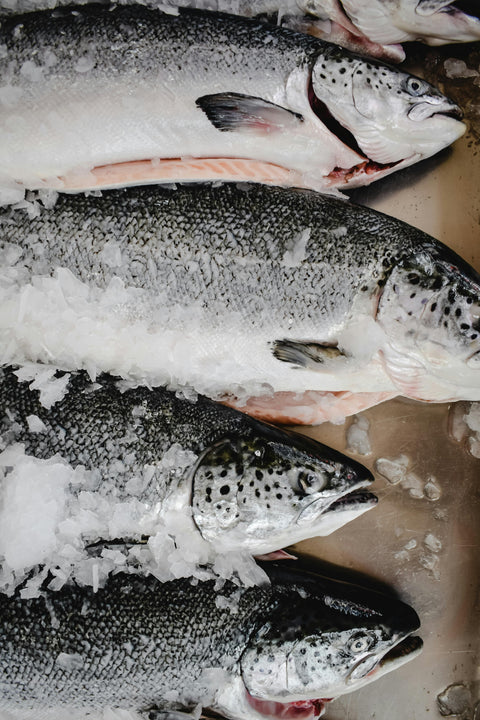
The Science Behind Brain Health: Salmon, Fatty Acids and Omega-3s
Salmon is often praised for being one of the best sources of omega-3 fatty acids, and for good reason. These essential fats, especially EPA (eicosapentaenoic acid) and DHA (docosahexaenoic acid), are vital for maintaining optimal brain function and mental health. Since our bodies can't produce these fatty acids on their own, we must get them through food—and salmon is one of the richest and most accessible sources.
What Are Omega-3 Fatty Acids?
Omega-3 fatty acids are polyunsaturated fats that play an essential role in maintaining the structure and function of the brain. They are key to the development and maintenance of healthy cell membranes, which is crucial for neuron communication. There are three main types of omega-3s, ALA, EPA and DHA.
DHA makes up a significant portion of the gray matter in the brain, particularly in areas responsible for learning, memory, and emotion. It helps maintain the flexibility and integrity of cell membranes, allowing neurons to communicate efficiently. Without enough DHA, brain cells can't transmit signals effectively, which can impair memory, learning, and cognitive performance over time.
EPA, on the other hand, has more of a regulatory role in inflammation and mood. Chronic inflammation in the brain is linked to mental health issues such as depression and anxiety. EPA works to reduce this inflammation, helping to stabilize mood and improve emotional resilience. It's why many studies suggest that omega-3s, particularly EPA, can help alleviate symptoms of depression and even reduce the risk of developing mental health disorders.
ALA is the primary plant-based omega-3 fatty acid and plays a crucial role in supporting overall health, though its direct functions are less potent than those of EPA and DHA. ALA serves as a precursor to these more active forms, with a small portion converted into EPA and DHA. Despite the limited conversion, ALA still contributes to reducing inflammation and supporting cardiovascular health. Without enough ALA, the body lacks the essential building blocks for creating EPA and DHA, which can affect heart health and the body’s ability to fight inflammation over time.
How Omega-3s Support Cognitive Function
- Memory and Learning: DHA is particularly concentrated in the brain's hippocampus, the region involved in forming and retrieving memories. Omega-3s help maintain the plasticity of the brain—its ability to adapt, grow, and form new neural connections. This is critical for both memory retention and learning new information.
- Neuroprotection: Omega-3s protect the brain by reducing oxidative stress and inflammation, which are linked to age-related cognitive decline and neurodegenerative diseases like Alzheimer’s. People who regularly consume omega-3-rich foods like salmon have shown better cognitive performance in older age, with slower rates of brain aging and shrinkage.
- Mood Regulation and Emotional Health: Omega-3s play a role in regulating neurotransmitters such as serotonin and dopamine, the brain chemicals responsible for mood, motivation, and reward. A deficiency in these neurotransmitters is often linked to mental health issues like depression and anxiety. EPA, in particular, has been shown to reduce symptoms of depression, acting as a natural anti-inflammatory that calms the brain.
The Science Behind Omega-3s and Mental Health
Numerous studies have established the connection between omega-3 intake and improved mental health. Research has shown that people with low levels of omega-3s in their diet are more prone to conditions like depression, anxiety, and even ADHD. In one study, people who consumed more omega-3s reported a significant reduction in the severity of depression symptoms. Another study found that omega-3 supplementation helped reduce anxiety levels in young adults.
The brain’s need for omega-3s becomes even more apparent when looking at societies that consume high amounts of fish. Countries like Japan and Iceland, where fish consumption is central to the diet, report lower levels of depression and cognitive decline compared to countries with lower fish intake.
Omega-3s and the Prevention of Neurodegenerative Diseases
One of the most promising areas of research on omega-3s is their role in preventing or delaying the onset of neurodegenerative diseases, such as Alzheimer's and dementia. Omega-3s are thought to reduce beta-amyloid plaques—clumps of proteins that are commonly found in the brains of people with Alzheimer's. By reducing inflammation and promoting neuron health, omega-3s help protect the brain against the gradual deterioration that leads to cognitive disorders.

How Salmon Helps Combat Stress, Anxiety and Sleepless Nights.
When it comes to managing stress and improving your mood, salmon offers more than just a satisfying meal—it’s a natural stress-buster and mood stabilizer, thanks to its rich content of omega-3 fatty acids. These essential fats play a critical role in the brain’s ability to regulate mood and reduce stress levels. If you’re looking for a natural way to improve your emotional well-being, salmon could be an ideal addition to your diet.
1. The Link Between Omega-3s and Mental Health
Omega-3s are vital for brain function, particularly in managing emotional and psychological responses to stress. Research has shown that omega-3 fatty acids can significantly affect neurotransmitter function, which in turn influences how we feel. Neurotransmitters like serotonin and dopamine, often referred to as the "feel-good" chemicals, are responsible for regulating mood, anxiety, and emotional balance.
Low levels of these neurotransmitters have been linked to depression and anxiety disorders, but regular consumption of omega-3-rich foods like salmon can help maintain their proper levels in the brain. Specifically, EPA is known to have a more direct impact on reducing inflammation and helping the brain cope with stress, while DHA is crucial for overall brain health and function, supporting long-term mood stability.
2. How Omega-3s Reduce Stress
One of the key ways omega-3s help combat stress is by reducing inflammation. Chronic stress leads to increased inflammation in the brain, which can contribute to mental health issues such as depression, anxiety, and even cognitive decline. Omega-3s, particularly EPA, have anti-inflammatory properties that counteract this process, helping to reduce both the physical and mental effects of stress.
In fact, several studies have shown that people who consume higher levels of omega-3s are less likely to suffer from anxiety or chronic stress. One study found that participants who regularly ate omega-3-rich fish like salmon experienced a reduction in their stress hormone levels.
3. Improving Emotional Health and Reducing Anxiety
In addition to reducing stress, salmon can help with anxiety. Anxiety is often linked to an imbalance in the brain’s neurotransmitter systems, particularly serotonin and dopamine. Omega-3s, especially DHA, are involved in the regulation of these systems, which helps reduce symptoms of anxiety and depression.
Several clinical studies support this connection. In one study, participants with higher omega-3 intake reported fewer symptoms of anxiety, and in some cases, even experienced a significant reduction in generalized anxiety disorder. Another study found that omega-3 supplementation helped reduce anxiety in medical students, who are typically under high levels of stress. These findings suggest that omega-3s, whether through whole food consumption like salmon or supplementation, can be an effective natural aid in managing anxiety.
4. Say Goodbye to Sleepless Nights
Salmon offers incredible benefits for both mental and physical health. Its omega-3 fatty acids and vitamin D improve sleep quality by regulating melatonin and supporting your body's natural sleep-wake cycle. But salmon also helps reduce stress by balancing cortisol levels, the hormone that spikes during stress. Omega-3s in salmon help lower excessive cortisol, reduce inflammation, and improve heart rate variability—all of which contribute to better stress management, lower anxiety, and a more restful, balanced lifestyle.
5. Omega-3s and Depression: A Natural Antidepressant?
Depression, like anxiety, is closely tied to brain inflammation and neurotransmitter imbalances. Omega-3s, particularly EPA, are thought to act as natural anti-inflammatory agents, helping to reduce the inflammation that contributes to depression. In fact, omega-3s are so effective that many researchers believe they could serve as a complementary treatment for depression alongside traditional therapies.
A large-scale study published in the Journal of Clinical Psychiatry found that people who took omega-3 supplements experienced significant improvements in depressive symptoms, especially when traditional antidepressants alone were not fully effective. In another study, individuals with major depressive disorder (MDD) who took high doses of omega-3s, particularly EPA, saw significant improvements in mood and emotional well-being.
6. The Bigger Picture: Long-Term Benefits for Mental Health
The benefits of eating salmon extend far beyond just a reduction in day-to-day stress and anxiety. Regular consumption of omega-3-rich foods like salmon has been linked to long-term improvements in mental health, including better mood stability, reduced risk of mental health disorders, and improved emotional resilience.
Over time, a diet rich in omega-3s can help protect against the cognitive decline and mental fatigue that often come with chronic stress. The anti-inflammatory properties of omega-3s, combined with the essential nutrients found in salmon, make it a valuable ally for long-term brain health.

How Much Omega-3 Do You Need to Consume?
Omega-3 fatty acids are essential for everyone, but the daily requirements differ by age and gender. For men, it’s recommended to consume around 1.6 grams of ALA per day, while women need about 1.1 grams of ALA daily. Children’s needs vary by age: younger kids (1-3 years) require about 0.7 grams, and this increases to 1.2 grams for boys and 1.0 grams for girls aged 9-13.
When it comes to EPA and DHA, which are primarily found in marine sources, health experts suggest that adults aim for 500-1,000 mg per day for general health, often equivalent to two servings of fatty fish per week. Pregnant and breastfeeding women should prioritize 700-1,000 mg, focusing on at least 300 mg of DHA to support fetal brain development. For children, the recommendation is about 500 mg for infants and can go up to 1,200 mg for older kids.
Omega-3 Rich Foods and Their Content Per 100 Grams:
Marine Sources (Rich in EPA and DHA):
- Mackerel: 5,134 mg of omega-3s
- Salmon: 2,260 mg of omega-3s
- Sardines: 1,480 mg of omega-3s
- Anchovies: 2,113 mg of omega-3s
- Herring: 2,366 mg of omega-3s
Plant-Based Sources (Rich in ALA):
- Flaxseeds: 22,800 mg of omega-3s
- Chia Seeds: 17,550 mg of omega-3s
- Walnuts: 2,570 mg of omega-3s
- Hemp Seeds: 2,600 mg of omega-3s
- Soybeans: 1,443 mg of omega-3s
Are Marine sources better than plant-based sources of Omega-3?
Both plant-based and marine-based omega-3s have their benefits, but EPA and DHA from marine sources are generally more potent and directly usable by the body. ALA from plant-based sources is a great option for those on a plant-based diet, but supplementation with EPA and DHA might be needed for full benefits, particularly for brain and heart health. Ideally, a combination of both plant and marine sources will provide the most comprehensive omega-3 intake.

Natural Sources vs. Supplements: Which is Better for Omega-3 Intake?
When it comes to getting your daily dose of omega-3, you have two main options: natural food sources or supplements. Each has its own benefits and potential downsides, and choosing the right one for you depends on your lifestyle, dietary needs, and health goals.
Natural Sources of Omega-3
The most effective way to get omega-3s is through whole foods, which come packed with other essential nutrients that support overall health.
Pros:
- Nutrient Powerhouses: Foods rich in omega-3s, like fatty fish (think salmon, mackerel, and sardines), and plant-based options like flaxseeds and chia seeds, provide more than just omega-3s. You also get a dose of vitamins, minerals, and antioxidants that help your body function at its best.
- Balanced Nutrition: Whole foods naturally balance omega-3s with other beneficial fats, which helps your body absorb and use them effectively.
- Sustainable and Delicious: Incorporating omega-3-rich foods into your diet doesn’t just benefit your health—it can also add variety and flavor to your meals.
Cons:
- Dietary Limitations: If you’re vegan, allergic to fish, or have dietary restrictions, getting enough omega-3s from food alone—especially EPA and DHA from marine sources—can be a bit tricky.
- Availability: Depending on where you live, some omega-3-rich foods, especially certain types of fish, may not always be accessible or affordable.
Omega-3 Supplements
For those who find it hard to get enough omega-3s from food alone, supplements like fish oil, krill oil, and algae oil are an easy, convenient alternative.
Pros:
- Convenience: If you don’t regularly eat fish or omega-3-rich plant foods, supplements offer a quick and easy way to boost your intake.
- Precise Dosage: With supplements, you know exactly how much omega-3 you’re getting, making it easier to meet your daily needs, especially for specific health goals like supporting heart health or during pregnancy.
- Vegan-Friendly Options: Algal oil, made from algae, is a plant-based source of DHA and EPA, making it ideal for vegetarians and vegans.
Cons:
- Limited Nutrients: Unlike whole foods, supplements only provide omega-3s, without the additional vitamins, minerals, and antioxidants that you’d get from eating the real thing.
- Quality Issues: Not all supplements are created equal. Some may contain impurities, like mercury, or degrade if not stored properly, which can reduce their effectiveness.
- Overuse Risks: It’s easier to go overboard with supplements, which can lead to potential side effects like digestive upset or increased bleeding risk.
Which is Better?
For most people, natural sources are the gold standard, offering a broader range of nutrients and benefits. However, supplements are a great backup, especially for those who struggle to get enough omega-3s from food due to dietary preferences or restrictions.
Ideally, combining both approaches—eating omega-3-rich foods like fatty fish, seeds, and nuts, and using supplements when necessary—can help you meet your daily needs and support your overall health.

Tips Going Forward...
1. Add Fatty Fish to Your Weekly Menu
Eating fatty fish like salmon, mackerel, sardines, or trout at least twice a week is one of the best ways to ensure you’re getting enough EPA and DHA, the two most beneficial forms of omega-3s. Opt for grilling, baking, or pan-searing to retain the nutritional value of the fish.
2. Embrace Plant-Based Omega-3s
If you're following a plant-based diet, you can still get your omega-3s from flaxseeds, chia seeds, hemp seeds, and walnuts. Add them to smoothies, sprinkle them over salads or oatmeal, or simply snack on them to give your body a boost of ALA, the plant-based form of omega-3.
3. Look for Omega-3-Fortified Foods
Many everyday products, like eggs, milk, yogurt, and even some breads, are fortified with omega-3s. Incorporating these into your meals can help fill in the gaps, especially if you don’t eat fish regularly.
4. Consider Algae Oil for a Vegan Option
For vegans or those avoiding fish, algal oil is a fantastic alternative to get DHA, the omega-3 essential for brain and eye health. Algal oil is derived from algae and is available as a supplement, offering a plant-based solution for your omega-3 intake.
5. Balance Your Omega-6 to Omega-3 Ratio
While omega-6 fats are also essential, too much can interfere with your omega-3s. Try reducing omega-6-rich oils like corn, soybean, and sunflower oil while increasing your omega-3 intake. This balance can help reduce inflammation and support heart health.
6. Supplement When Necessary
If your diet doesn’t provide enough omega-3s, consider taking a high-quality omega-3 supplement, such as fish oil, krill oil, or algal oil for a vegan option. Be sure to follow the recommended dosage and consult with a healthcare professional if needed.
7. Snack on Omega-3-Rich Foods
Incorporate omega-3s into your snacks! Try walnuts, chia seed pudding, or flaxseed crackers for a nutritious, omega-3-packed bite between meals. You can also make homemade energy bars or bliss balls with flaxseeds and walnuts for an extra boost.
8. Use Omega-3-Rich Oils in Cooking
For a simple addition to your diet, swap regular cooking oils with flaxseed oil or hemp oil in your salad dressings or drizzled over roasted veggies. These oils are rich in ALA and make for an easy way to integrate more omega-3s into your daily meals.

Farmed vs. Wild Salmon
The debate between farmed and wild salmon often centers around perceived quality, but the reality is more nuanced. Wild salmon is prized for its natural diet and free-range environment, leading to a leaner texture and distinct flavor. However, it can vary in availability and may carry environmental contaminants depending on the waters it comes from.
On the other hand, farmed salmon, especially from regions like Norway or the Faroe Islands, is raised under strict regulations and quality control measures. These farms are subject to stringent rules on water cleanliness, feed, and fish health, ensuring that farmed salmon is consistently of high quality, rich in omega-3s, and free from harmful pollutants. The controlled farming environment also minimizes overfishing pressures on wild stocks, making it a more sustainable option in many cases.
In terms of nutrition, both farmed and wild salmon are rich in essential nutrients like protein and omega-3 fatty acids. However, farmed salmon often has a higher fat content due to its controlled diet, which can actually result in more omega-3s per serving compared to some wild varieties.
Ultimately, the choice between farmed and wild salmon depends on personal preferences, but it’s important to note that today’s farmed salmon is carefully managed to ensure sustainability, consistency, and safety—making it an excellent choice for those seeking quality and environmental responsibility in their seafood.

Faroe Islands Farmed Salmon
Faroe Island Farmed Salmon has journeyed from the immaculate seas of the Faroe Islands to the global culinary stage, not just as a participant, but as an unparalleled leader in flavor and quality.
At Swedishness, we bring this culinary marvel to your doorstep with a straightforward, dedicated service. Each piece of salmon you receive from us is more than a meal; it’s a ticket into a world of unmatched flavor and quality.
Ready to experience a taste like no other? Try Faroe Island Farmed Salmon and let your palate explore a world where quality and flavor reign supreme. Share your experience with us. After all, true quality speaks for itself, and we’re confident your taste buds will agree.
Why Choose Salmon from the Faroe Islands?
1. Unmatched Flavor
The first taste of Faroe Island Farmed Salmon is a gateway into a world where the savory and subtly sweet coalesce into a remarkable culinary experience. This unique and rich flavor, nurtured in the cool, pure waters of the Faroe Islands, stands peerless in the culinary world, captivating chefs and diners alike.
Water Quality: The Faroe Islands are located in the North Atlantic Ocean, providing the salmon farms with cold, clean, and nutrient-dense waters, which are ideal for salmon cultivation.
Marbling: The loins from Faroese salmon often showcase beautiful marbling, which is an interlacing of fat within the muscle that contributes to a rich flavor and moist texture upon cooking.
2. Commitment to Sustainability
Protecting our oceans is paramount, and that’s why the Faroe Islands’ salmon farming is dedicated to sustainability. Every stage, from farming to harvest, is managed meticulously, ensuring that production is balanced with ecological responsibility, preserving the seas for future generations.
3. Cutting-Edge Farming Technology
Employing advanced farming technologies, the salmon are nurtured in optimal conditions. These technologies enhance both their quality and flavor while also supporting sustainable practices, safeguarding the seas and their inhabitants.
4. Uncompromising Quality Control
Quality isn’t just a goal; it’s a guarantee. From egg to plate, each salmon is subject to rigorous inspections and quality checks, ensuring every piece is healthy, flavorful, and adheres to the pinnacle of quality standards.
5. A Star in the Culinary World
Faroe Island Farmed Salmon isn’t just a choice; it’s a staple in the global culinary scene. Its presence in Michelin-starred restaurants and its accolades from chefs and culinary experts worldwide attest to its superior quality and exceptional taste.
6. Virtually Antibiotic-Free Farming
In an era where conscientious consumption is key, Faroe Island Farmed Salmon shines with its virtually antibiotic-free farming. The minimal use of antibiotics, driven by innovative practices, effective vaccinations, and a steadfast commitment to fish welfare and biosecurity, ensures that the salmon is not only of the highest quality but also produced with a mindful approach to health and sustainability.
7. Optimal Water Conditions
The unique sea conditions of the Faroe Islands provide an unparalleled environment for salmon farming. The consistently cool temperatures of the North Atlantic Ocean, coupled with strong currents, create a habitat where salmon can thrive. These optimal conditions promote the salmon’s health, contributing to their distinct flavor and firm texture, as the continuous movement in the water enhances their muscle development.



